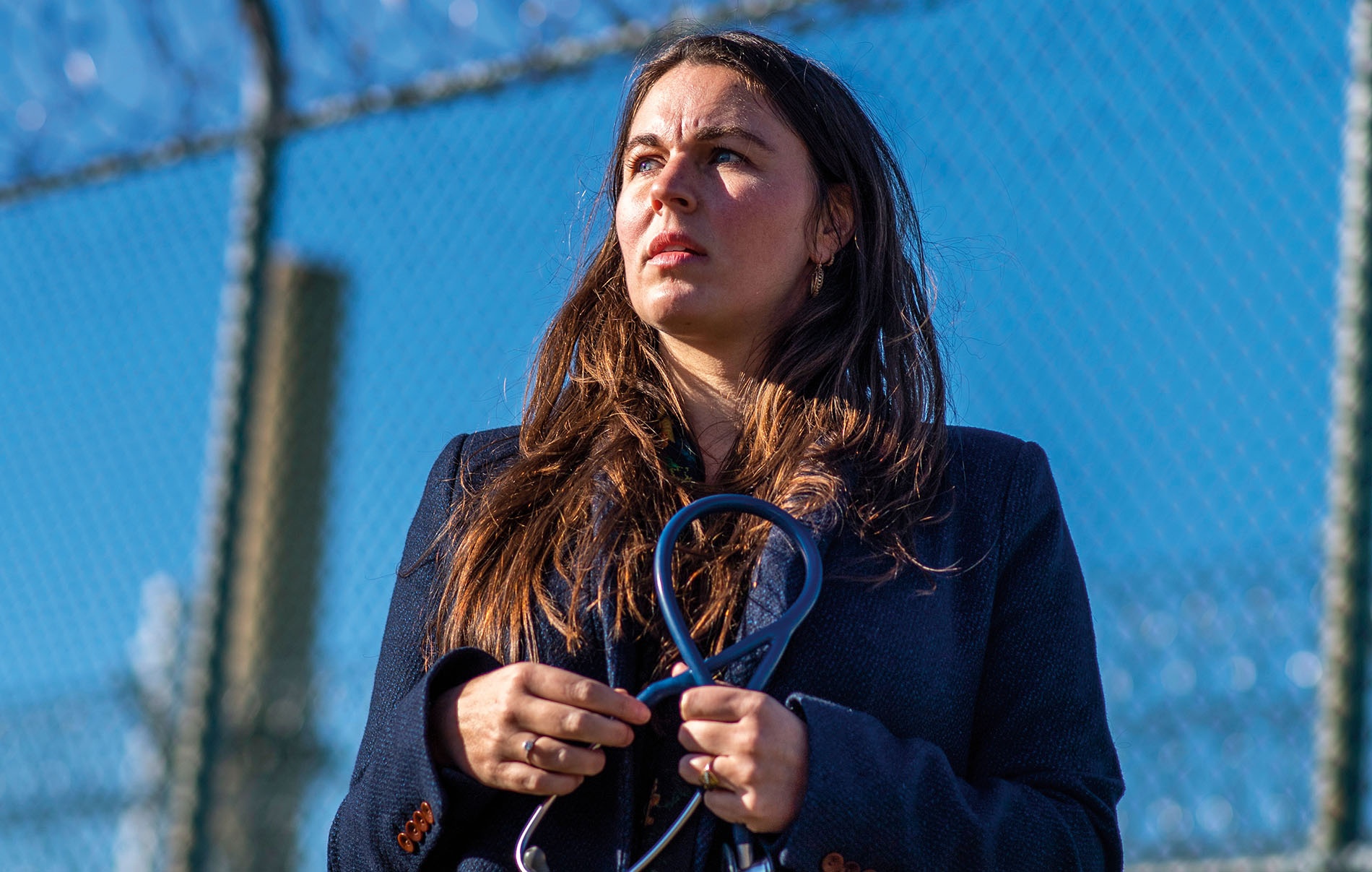While studying history at Brown, Dr. Rachael Bedard ’05 got a life-changing opportunity: to follow up her undergrad years at New York City’s Icahn School of Medicine in a special program that recruits humanities students not on a traditional premed track. “I’d already taken a public health class freshman year at Brown, which helped me crystallize the idea of health as an area where policy interventions could benefit people’s health,” says Bedard, who lives in Brooklyn.
After med school, she ended up doing just that, as a doctor for New York City’s Department of Corrections at Rikers, the centralized island city jail complex that has come under intense scrutiny and criticism in recent years amid rising deaths, violence, and staff attrition. During COVID, she was among a fleet of medical professionals in the system urging the city to release as many non-high-risk prisoners as possible in order to mitigate COVID spread. They were highly successful at first—but when crime surged later in 2020, and with it pro law and order sentiment, the city began reversing the policy.
“COVID was a terrifying moment but also held the possibility of accelerating a trend of releasing aging and infirm prisoners and lowering the prison population,” she says. “But then came disillusionment and disappointment. We lost a ton of ground.”
Demoralized, Bedard left the job in early 2022. But her desire to improve health outcomes through policy was undiminished. Currently, she serves on the New York City Council’s Board of Corrections, which sets operation standards for city jail facilities and also visits and monitors them. She’s also on a subcommittee creating a survey for all inmates and staff in the system who identify as women to assess their experiences with sexual harassment.
That’s not all. After Roe v. Wade was reversed last year, she started the group Families United for Freedom, which fundraises and consults on state ballot initiatives to push back abortion restrictions or enshrine in law abortion freedoms. All states the group worked with in the 2022 election cycle—Kansas, Kentucky, Montana, and Michigan—had successful ballot outcomes for abortion access. “Ballot initiatives are an important avenue for advancing rights in red and purple states that have been gerrymandered to have Republican legislatures,” she says. “They give voters a chance to voice their feelings directly.”
On top of all that, as she takes a break from clinical work, she’s writing about health and social justice regularly for outlets including the New Yorker and the New York Times. Amid a career that has mixed doctoring, advocacy, and writing, she says, “the through-line is a commitment to thinking about how to practice medicine as a form of human rights.”






